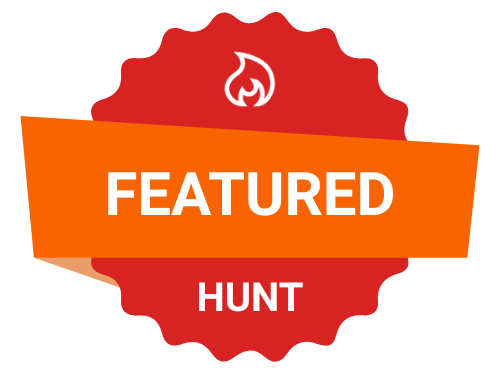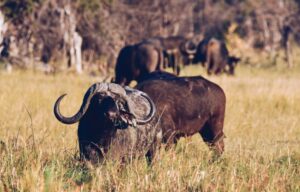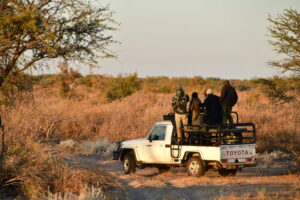
**** Observers welcome at US$ 515 per day (Including government VAT)
**** Cameramen/videographers at US$ 515 per day
For many years, Botswana was one of the top big game hunting destinations in Southern Africa, showcasing incredible populations of game such as Elephant, Lions and Leopards, including Cape Buffalo, Aka “Africa’s Black Death”. Botswana also boasted a wide variety of African plains game. These antelope inhabited Botswana from the Okavango Delta to the scenic and magical Kalahari Desert.
In 2013, the Botswana government issued a ban on all hunting activities on government and community lands, but fortunately in line with conservation principles the ban was lifted in recent years. Botswana is home to more free-range wild Elephant than any other country in Africa, with Zimbabwe a close second. Botswana is famous for producing big cats, with only 130 tags being issued by CITES every year.
Clive, working with his daughter Kim, have been offering and conducting dangerous game hunting safaris in Botswana since 1992. Clive works directly with communities and other businesses in various concessions throughout Botswana and has acquired some of the best hunting blocks in the country, offering dangerous game hunts for Elephant, Leopard and Cape Buffalo.
These blocks vary from Kalahari landscape to the fringes of Okavango Delta habitat, with each habitat boasting its own special ambiance and attractions. The block being hunted for the safari will depend on the time of the yea, animals migrate depending on seasons. This family-owned safari company works closely with the local San Bushman community and has a passion for conservation of wildlife and ethical sustainable hunting.
Hunting with Clive and team, you can expect some of Africa’s finest hunting.
The hunting season in Botswana runs from April to September, which are also the cooler months. In summer, the temperatures are high, which cause an influx of critters such as insects, ticks and mosquitos. If you have hunted in Africa during the warmer months, you will know all about the infamous “pepper ticks” and how unpleasant their bites can be.
Leopards and Cape Buffalo travel great distances and as such, when it comes to dangerous game hunting in Botswana and health, these safaris can take you into malaria areas. Speak with your physician about obtaining a prescription against malaria.
Leopard hunts in Botswana, on this offering (Leopards can also be hunted with hounds), are conducted using the baiting method.
Key locations within the hunting concession will be baited. The cooler months also assist with keeping the baits “fresh.” A typical days Leopard hunting will be leaving early in the morning after a quick breakfast to scout for Leopard tracks and activity. Trail cams are used to identify any visitors hitting the bait. Once a suitable male Leopard has been identified, a blind will be constructed ensuring that you will have an unobstructed view of the bait. You will then sit in the blind from late afternoon until deep into the night waiting for the trophy Leopard to return.
While not hunting during the day, you will do the “bait run,” checking areas and baits and refreshing where needed.
This method of hunting will follow “old school” and ethical hunting practices. A typical day will be setting out early in the morning to look for signs of fresh Buffalo tracks or feedback after possible sightings. After a consult with the Bushman and Clive, a decision will be made whether or not to follow the specific set of tracks.
Cape Buffalo hunting will be at close quarters, and you can expect shots to be taken anywhere from fifteen to thirty yards. Botswana has healthy populations of Cape Buffalo with numbers in excess of 30000. You will be spoiled for choice, and harvesting a trophy Free-Range Cape Bull with loads of character is “on the cards.”

When we talk about dangerous game hunting in Africa, successfully harvesting a trophy Leopard and Cape Buffalo is going to be all about shot placement pound for pound, a wounded Leopard is the most dangerous animal in the world and can do extreme damage in just a matter of seconds.
The same applies for Cape Buffalo, which makes this hunt all the more exciting. Dangerous game hunting in Botswana is serious business, but one of the best value and adrenaline hunting safaris available.

As hunting concessions will vary depending on seasons and species, hunters will either fly into Maun or Kasane. When booking the hunt, these logistics will be finalized.
For hunts at CH8 Buffalo Camp, CT5 Ivory Camp or CH12 Bottlepan Camp: Kasane please fly into Kasane, Botswana. Kasane to CH8 Buffalo Camp is about a one and half hours’ drive. Kasane to CH12 Bottlepan Camp is about a two hours’ drive.Kasane to CT5 Ivory camp is about a three hours’ drive. For hunts in the Kalahari, NG8, NG9 or NG3 please fly to Maun, Botswana.
Should you wish to charter a Helicopter or light aircraft to any of the camps it will be easier to arrange the charter from Maun, this is where most of the charter companies are based.
Both Maun and Kasane can be reached by regional flight from Oliver Tambo International Airport, flying from South Africa. This flight is approximately two hours in duration and really is just a “quick hop” across the border. For flights from Oliver Tambo to Botswana, we would recommend Airlink, The flights are on time, affordable and the food is great. Should hunters need to stay overnight in Johannesburg, we would recoomnednd making use of Africa Sky Boutique Hotel, who offer transfers to/from Oliver Tambo and can assist with firearm permits into South Africa (SAPS 520). For further information, see “Affiliate Services” below.
Daily Rates (12 Days): US$ 18 400
Botswana Government 14% Vat : US$ 2 576
Resource Utilization: Leopard (Incl. License Fee) US$ 12 000
Resource Utilization: Cape Buffalo (Incl. License Fee) US$ 6 000
Trophy Fee: Leopard US$ 7 000
Trophy Fee: Cape Buffalo US$ 2 500
When importing a rifle into Botswana for sport hunting, you must apply for a permit in advance, and as one would expect, also pay a fee. The rifle import fee will typically cost +- US$ 150. You can only bring two rifles and one shotgun, and a maximum of 100 rounds of ammunition per firearm.
The permit application process will include: (Clive and support staff will be assist)
When planning your African hunt in Botswana, prioritize health by consulting your doctor about recommended vaccinations (Hepatitis A, Rabies and Typhoid) and Malaria Prophylaxis. Malaria can be a significant risk in Botswana, especially in the northern areas such as the Okavango Delta. While Clive and Kim have medical kits on standby, packing a personal kit including your necessary medical provisions is essential (sunblock, contact lens solution, etc.)
Botswana’s tremendous diversity in terms of wildlife and habitats offers a wide variety of non-hunting activities, which include:
Trips to the Chobe or the famous Okavango Delta can also be arranged.
If any further information is required relating to this big game hunt in Botswana, please contact the team at Game Hunting Safaris or message Clive directly using the quick message icons. To check availability, submit the preferred dates in “Request to Book” and Clive will revert.
Please note that terms, conditions and price are subject to change without notice and rates at the time of the hunt will apply
Needing assistance with firearm permits and international travel services, or good taxidermists? View our affiliated companies
View Affiliated Services